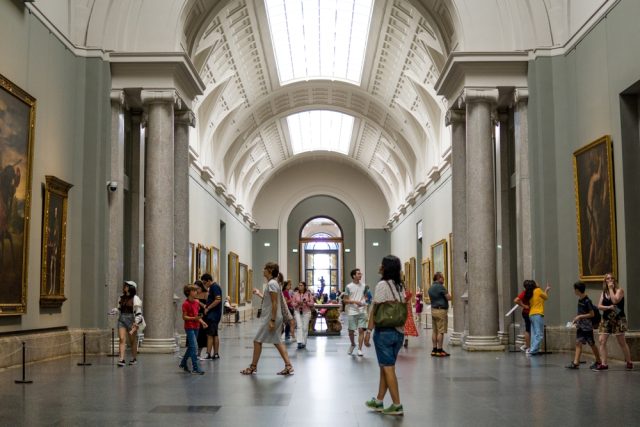
Last January, the Spanish Minister of Culture, Ernest Urtasun, shared his position and point of view regarding the issue of decolonization, and particularly the decolonization of museums, stating the following: “It is a matter of establishing spaces for dialogue and exchange, that allow us to overcome this colonial framework”, which “translate into a reviewing process”.
Regarding this subject, Urtasun shared that the decolonization of museums is a matter that needs to be handled urgently and, for this reason, it will be one of the main lines of work to be addressed by his ministry. During his appearance before the Commission of Culture in the Spanish Parliament, he announced that he will “move forward” regarding this subject “which has already been adressed by other international museums”, promoting a reviewing process that “allows to overcome a colonial framework or anchored in gender or ethnocentric inertias that have burdened, on many occasions”, the vision of heritage, history, and artistic legacy.
This process of decolonization includes sections that go from the notion of rearranging the collections with a discourse that is respectful and tolerant with the colonies, to the act of returning the pieces to the countries in which they were firstly produced and found.
Concerning this, Urtasun clarified in a press conference that “Our museums are living museums that over many years have been adapting their museum projects to incorporate new perspectives. Spanish museums have been doing this for many years and it is an exercise that will continue to be done”. After these statements done by the Minister, the spokesperson for Vox in the Congress of Deputies, Pepa Millán, stated that the proposal by the Minister of Culture is “a smokescreen to divert attention from what is really important, which is that this government is going to grant amnesty to those who committed acts of terrorism”.
On the other hand, Vicente Barerra, Vice-President and Councillor for Culture and Sport in the Valencian Community for VOX, called on the rest of the PP and Vox regional governments not to abide by the Culture proposal to decolonise museums and accused Minister Urtasun of “buying the black legend” against Spain.
With this idea in mind, the Museo de America in Madrid, took advantage of the celebration of International Women’s Day on March 8th, by organizing an activity together with “Movimiento Justicia Museal”, called “8-M. del postureo a la acción”, a workshop that included a list of activities, which was presented as a “round of thought and graphic action”, with the ultimate goal of inviting attendees to “question and reformulate to inhabit the present with awareness”.
The Museo de América promoted the activity on their social platforms assuring that: “The activity will consist of a round of reflection to invite us to question colonial practices, intertwining transfeminist, anti-racist and intersectional knowledges and a round of action to exercise our right to participation, representation and production of senses”.
One of the attendees thought that this event could be the perfect approximation to the decolonizing policy that the Minister of Culture had shared back in January and, is trying to implement, despite the lack of sense it might have or the negative consequences it can carry. According to her, the talk was given “by a Bolivian indigenous woman, a Peruvian transvestite, a trans racialized person and a lawyer from Seville, who was specialized in Human Rights and was an activist in the defense of the gypsy people”, and “none of them actually knew what their role in the event was”. Among the activities organized for the evening, one of them consisted of redesigning certain works of art that could be found in the museum. These included blank spaces, inviting the participants to write “what would the characters say”. Among the works of art chosen for this activity, these were none other than paintings of Castes, works that represented the miscegenation in the Viceroyalty of New Spain. But this did not seem to be an issue, as the rest of the people who attended the activity happily completed the task, including phrases such as “anticolonialism”, “white Eurocentrism” and “theft of gold”, shared the attendee.
Throughout the activity, the participants kept referring to a “patriarchal capitalism” and repeated statements like “We must storm the museums, it seems, and recover what is ours. Decolonize, decolonize, redress, repair, synergies, heteropatriarchy, whiteness, Eurocentrism.”
Now this idea and the new policy presented by the Spanish Minister of Culture, Ernest Urtasun, can be ironic and should be given a second thought, as, the same people that were demanding the devolution of these paintings to their original countries, were the first ones whom were not originally from Spain but decided to stay in this country.



 Subscribe
Subscribe